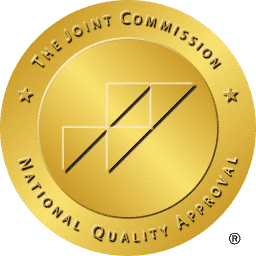Despite appearing successful and accomplished, many people struggle with persistent sadness, emptiness, and fatigue, hindering their ability to find true fulfillment and joy in life. This is often due to high-functioning depression, a lesser-known subtype of depression that often goes unnoticed or undiagnosed.
The lack of awareness and understanding surrounding high-functioning depression perpetuates the invisibility of this condition, preventing individuals from seeking the support they need. Friends, family members, and even healthcare professionals may unknowingly overlook the hidden struggles of those affected by this mental health condition, further exacerbating their feelings of isolation and despair.
This comprehensive guide aims to shed light on high-functioning depression, its impact on individuals, and the available treatment options.
What Is High-functioning Depression?

High-functioning depression, also known as smiling depression, is a severe form of major depression that often goes unnoticed or undiagnosed. Unlike typical clinical depression, individuals manage high-functioning depression by maintaining a facade of normalcy, often appearing cheerful and accomplished to the outside world. They often excel in their professional lives, maintain social engagements, and engage in activities that society deems as markers of success. However, beneath their seemingly perfect exterior, they grapple with a profound sense of sadness, emptiness, and fatigue.
What sets high-functioning depression apart is the ability of individuals to function and perform daily tasks, sometimes even excelling in their pursuits, despite their internal struggles. This ability to “put on a happy face” can make it challenging for others to recognize their chronic pain and for the individuals themselves to acknowledge the depth of their emotional distress and effects on their mental health. Substance abuse and alcohol use are common coping mechanisms for people with with this major depressive disorder.
Understanding the dynamics of mental illnesses requires a shift in perspective. It involves acknowledging that appearances can be deceiving and that emotional pain can coexist with external success. By recognizing the existence of high-functioning depression and breaking the stigma surrounding mental health, we can create an environment where individuals feel safe to express their struggles and seek the support they deserve.
Symptoms and Impacts of Persistent Depressive Disorder

While individuals with high-functioning depression may excel at disguising their inner struggles, they still experience a range of emotional and physical symptoms that significantly impact their daily lives. Though not always apparent to others, these depressive symptoms can take a toll on their overall well-being. Understanding and recognizing these symptoms is essential to provide support and intervention to those affected.
High-Functioning Depression is not a recognized diagnosis in the Diagnostic and Statistical Manual of Mental Disorders, Fifth Edition Text Revision (the taxonomic and diagnostic tool published by the American Psychiatric Association). Instead, many folks seeking treatment end up being diagnosed with persistent depressive disorder (PDD). Common symptoms of persistent depressive disorder include a lack of energy or constant fatigue and the symptoms can last for two or more years.
Within the mental and behavioral health field a larger discussion exists surrounding the usage of “high functioning” in regard to labels or modifiers.
“Saying that somebody is high-functioning even though they have a mental illness in and of itself raises the stigma associated with mental illness.” Rebecca Brendel, immediate past president of the American Psychiatric Association, has stated.
Using functioning levels and labels can be minimizing for those experiencing symptoms and can also lead to stigma surrounding a person’s ability to function. When it comes to mental and behavioral health, we want folks to feel empowered to understand what their diagnoses may be and also to not be defined or confined by any labels.
On the reverse side, some folks prefer a label such as “high functioning depression” as they feel it is a less “severe” or restrictive label then PDD or other diagnoses. They also argue it helps explain in laymen’s terms (versus clinical jargon) what they feel they are experiencing.
It is important to note that as the term high-functioning depression is not an official diagnosis we do not have specific diagnostic criteria. This can lead to confusion within the mental and behavioral health field as well as for folks experiencing depressive symptoms.
Regardless of the official diagnoses it is important to understand what some coming signs and symptoms of depression may be:
Emotional Struggles
Individuals with this depression often battle persistent feelings of sadness, anxiety, or emptiness. These emotions can be overwhelming and may manifest as irritability or emotional numbness. Despite their high functioning personal and external achievements, the inner emotional turmoil persists, affecting their ability to experience genuine happiness and fulfillment.
Fatigue and Low Energy
High-functioning depression can lead to persistent fatigue and low energy levels for physical activity. Even simple tasks may feel exhausting, leaving individuals feeling drained and depleted. This fatigue can contribute to decreased motivation, lifestyle changes, and apathy towards previously enjoyed activities.
Difficulty Concentrating
Cognitive impairment is a common symptom of high-functioning depression. Individuals may struggle with maintaining focus, making decisions, and completing tasks. This difficulty in concentration can affect their productivity at work or school, leading to increased stress and frustration.
Changes in Appetite and Sleep Patterns
High-functioning depression often disrupts eating and sleeping habits. Some individuals may experience decreased appetite and weight loss, while others may turn to food for comfort, leading to weight gain. Similarly, sleep patterns may be disrupted, with some individuals experiencing insomnia or having trouble falling asleep, while others may oversleep and struggle with excessive daytime sleepiness.
Self-Doubt and Low Self-Esteem
Despite external accomplishments, individuals with high-functioning depression often struggle with inadequacy and self-doubt. They may dismiss their achievements as luck or attribute them to external factors, undermining their capabilities. This persistent self-doubt can erode self-esteem and contribute to a negative self-image.
Social Withdrawal
Although individuals with high-functioning depression may maintain social appearances, they may withdraw from social activities and isolate themselves emotionally. They may avoid intimate connections or rebuke their healthy relationships, fearing others will see through their facade and discover their inner struggles and constant low mood. This social withdrawal can lead to loneliness and further exacerbate feelings of isolation and unable to seek emotional support.
The impacts extend beyond the individual’s emotional well-being. It can affect their professional performance, academic achievement, and interpersonal relationships. Maintaining a normalcy can be emotionally exhausting and may lead to a disconnection between their outward success and inner emotional state. This can cause suicidal thoughts.
Understanding the Causes of High-Functioning Depression
The causes of high-functioning depression are multifaceted and can vary from person to person. It is important to note that mental health conditions like high-functioning depression are complex and can arise from genetic, biological, environmental, and psychological factors. Here are some potential causes and contributing factors to consider:
Biological Factors
Imbalances in certain neurotransmitters, such as serotonin and dopamine, have been associated with depression. Genetics may also play a role, as individuals with a family history of depression may be more prone to developing high-functioning depression.
Psychological Factors
Individuals with high-functioning depression may have a history of trauma, chronic stress, or unresolved emotional issues. These psychological factors can contribute to the development or exacerbation of depressive symptoms.
Social and Environmental Factors
External factors, such as challenging life events, relationship difficulties, work or academic stress, and a lack of social support, can contribute to the onset or persistence of high-functioning depression. The pressure to maintain appearances and meet societal expectations of success can exacerbate the condition.
Personality Traits
Certain personality traits, such as perfectionism, high levels of self-criticism, and a tendency to suppress emotions, have been linked to high-functioning depression. These traits can contribute to internal pressure and difficulty seeking help or expressing one’s struggles.
Coping Mechanisms
Individuals with high-functioning depression may employ maladaptive coping mechanisms, such as excessive work or achievement, to distract themselves from their emotional pain. These coping strategies can provide temporary relief but ultimately contribute to the perpetuation of depressive symptoms.
Treatment Options for This Mental Health Concern
When it comes to treatment options available to support individuals on their journey toward healing and recovery. It is important to remember that each person’s experience with high-functioning depression is unique, and a comprehensive treatment plan should be tailored to their needs. Here are some effective treatment options:
Psychotherapy
Psychotherapy, also known as talk therapy, is crucial in treating high-functioning depression. Cognitive-behavioral therapy (CBT), psychodynamic therapy, and other therapeutic approaches can help individuals identify and challenge negative thought patterns and develop healthier coping mechanisms. Through regular sessions with a trained mental health professional, individuals can gain insight into their emotions, explore underlying issues, and develop strategies for managing their symptoms.
Medication
In some cases, medication may be recommended to help alleviate the symptoms of high-functioning depression. Antidepressants, such as selective serotonin reuptake inhibitors (SSRIs) or serotonin-norepinephrine reuptake inhibitors (SNRIs), may be prescribed by a psychiatrist. These medications work to rebalance certain chemicals in the brain and can provide relief from symptoms. It is important to note that a qualified healthcare provider, primary care physician, clinical psychologist, or mental health professional should prescribe and monitor medicine.
Lifestyle Modifications
Adopting healthy lifestyle habits can significantly contribute to managing this clinical diagnosis. Regular exercise, a balanced diet, and sufficient sleep can positively impact overall mental well-being. Engaging in activities that bring joy and practicing self-care can also play a crucial role in improving mood and stress management.
Support Groups
Participating in support groups can immensely benefit individuals with high-functioning depression. Connecting with others facing similar challenges can provide a sense of belonging, understanding, and validation. Sharing experiences, learning from others, and receiving support from a community can foster a sense of camaraderie and promote personal growth.
Holistic Approaches
Complementary and alternative therapies can complement traditional treatments for high-functioning depression. Practicing mindfulness and other therapies such as art therapy, music therapy, yoga, meditation, and physical exercise can help individuals cultivate self-awareness, reduce stress, and promote emotional well-being. These holistic approaches provide additional tools for managing symptoms and enhancing overall mental health.
It is important to remember that treatment for high-functioning depression is not a one-size-fits-all approach. A comprehensive treatment plan often involves a combination of different modalities tailored to the individual’s unique circumstances. The expertise and guidance of mental health professionals, such as therapists, psychiatrists, and counselors, are crucial in developing a personalized treatment approach that best suits the individual’s needs.
Creating a Supportive Environment for Depressive Disorders
Building a supportive environment is crucial for individuals living with high-functioning depression, Major Depressive Disorder and other forms of depression. Whether you are a family member, friend, colleague, or healthcare professional, your understanding and support can make a significant difference in their journey. Here are some ways to create a supportive environment:
Educate Yourself
Take the time to educate yourself about high-functioning depression. Learn about the symptoms, challenges, and available treatment options. This knowledge will enable you to have informed conversations and better understand the experiences of those with high-functioning depression.
Offer Support and Encouragement
Show support to a person with high-functioning depression by offering a helping hand or a listening ear. Let them know that you are there for them and that their feelings are valid. Encourage them to seek professional help and accompany them to appointments if needed.
CarePlus New Jersey recognizes High Functioning Depression
High-functioning depression is a complex mental health condition that affects many individuals, often without being readily noticeable. At CarePlus New Jersey, we understand the challenges faced by those with high-functioning depression, we have seen people who suffer from this condition find peace. CarePlus New Jersey offers a wide range of treatments to support their journey toward recovery.
Through therapy, medication, lifestyle modifications, and holistic approaches, we strive to empower individuals to overcome their struggles and lead fulfilling lives. Remember, you are not alone, and seeking help is the first step toward healing.
If you or a loved one is experiencing high-functioning depression, contact CarePlus New Jersey today and take the first step to wellness.
Sources:
https://www.healthline.com/health/depression/this-is-what-high-functioning-depression-looks-like
https://www.verywellmind.com/high-functioning-depression-causes-symptoms-and-treatment-5324550
https://www.verywellmind.com/is-it-possible-to-have-functional-depression-4846575
https://www.medicalnewstoday.com/articles/high-functioning-depression
https://www.psycom.net/depression/high-functioning-depression
https://www.medicalnewstoday.com/articles/high-functioning-depression

Jen Velten, LPC, ACS, CCTP, DRCC- Director of Trauma Services
Jen Velten graduated John Jay College of Criminal Justice in 2015 with an MA in Forensic Mental Health Counseling and became a Licensed Professional Counselor in 2019. She is licensed in the State of New Jersey with 8 years of experience working with youth and families in the mental health field. She was a school counselor for 3 years as well as a clinician with Care Plus in the Child/Family Division for the past 8 years. Jen has focused her expertise on helping children and adults to overcome complex trauma experiences as well as work with the LGBTQ+ community. Jen is trained in TF-CBT, YMHFA, PFA and most recently became certified in EMDR.









